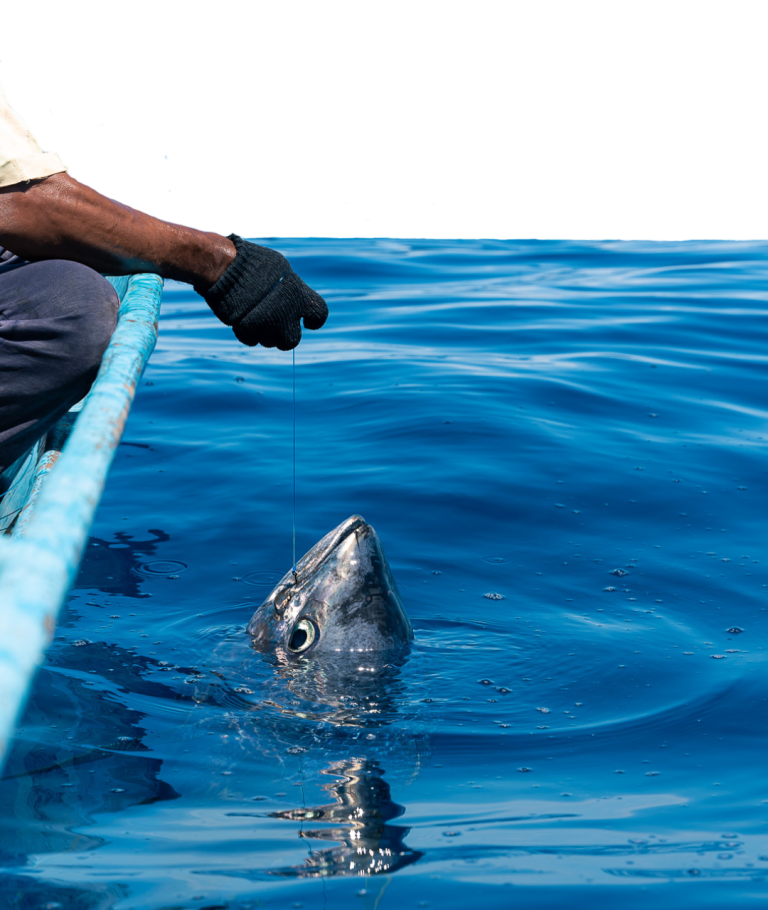
One-by-one caught tuna (pole-and-line, handline, or troll) from coastal small-scale fisheries is the only tuna fishing method, which is considered to be environmentally safe, socially responsible, and based on generations of tradition.
Fishing one-by-one not only allows tuna species to flourish, but it also reduces by-catch of marine life, helps to protect and restore biodiversity, and minimises plastic pollution.
Sustainable one-by-one fisheries bring income and recirculate wealth among coastal communities whose local economies depend on the fishing industry. This contributes to local food security, poverty alleviation, and secures livelihoods.
We represent small-scale tuna fisheries and are pushing the industry to focus more on sustainability. We work together with our one-by-one fisheries and IPNLF members – a network of industry leaders (commercial companies, large retail companies, seafood brands, food services, civil society organisations and associations) to drive change and improvements at sea to bring the most sustainable tuna to you. Find out where to get your one-by-one caught tuna.
We represent responsible small-scale fisheries and we want to ensure they receive the equal opportunities they rightly deserve. Our activities vary from practical projects that enable small-scale fishers to ensure best practices on the water, to working with businesses to implement improvements throughout the supply chain as well as ensuring that the rights and needs of one-by-one fishers are considered in regional, national and international policy.
Approximately 800 million people depend on seafood for sustaining their livelihood, there are 108 million people working in small-scale fisheries and almost 50 percent of workers throughout the supply chain are women. Our focus lies with empowering responsible fisheries to give back to the seas and people that depend on them.
We have a passion for our oceans, for tuna, and what it means to local coastal communities. By tying responsible one-by-one tuna fisheries to the market, pushing the industry forward, and giving you the opportunity to choose ethical tuna. If we have a thriving ocean with thriving people – coastal communities and industry – we have a thriving planet.
IPNLF’s team is represented on sea and land all across the globe. We work with a small, devoted remote team of experts. Our work is overseen and guided by our Board of Trustees with further guidance from our Scientific and Technical Advisory Committee (STAC) – a group of experts specialising in fishery research, development and management. Furthermore, our Market Advisory Group (MAG), made up of some of our members offer us market direction.
Find out exactly where your tuna comes from, how it was caught, and those who got it from catch to kitchen.
IPNLF’s Sourcing Transparency Platform (STP) is an online platform that drives greater transparency in one-by-one tuna supply chains. It’s a world-first that publicly promotes the responsible sourcing practices of businesses supporting one-by-one tuna fisheries.
Sign up for our different newsletters, follow us, and catch our latest articles, updates, and industry news via our social channels.